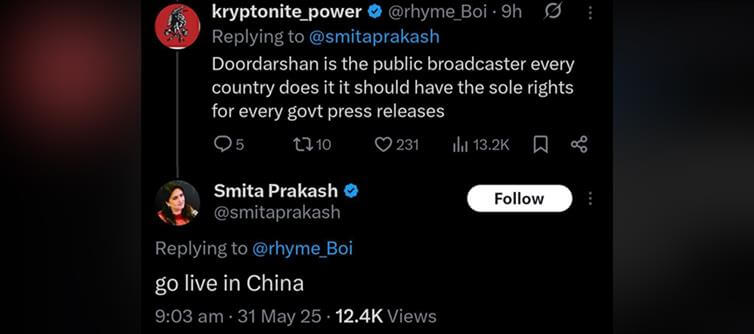
This kind of arrogance is often emboldened by proximity to power and the protection it offers. When journalists or media executives appear more as spokespersons for the ruling party than as independent watchdogs, they contribute to a culture of intolerance and exclusion. A healthy democracy requires the media to function as a bridge between the government and the public—not as a wall shielding those in power from scrutiny. Public broadcasters, such as Doordarshan, have a duty to serve all citizens, not just the state, and must maintain editorial independence to be credible.
Respectful dialogue and journalistic responsibility are cornerstones of any functioning democracy. media figures must lead by example, fostering conversations that are civil, inclusive, and rooted in facts. When they dismiss valid concerns with hostility or sarcasm, they damage not only their own credibility but also the public's trust in the media. In an era of deepening divides, it is more important than ever for the media to prioritize accountability over allegiance and uphold its duty as the fourth pillar of democracy—one that informs, questions, and unites, rather than divides.




 click and follow Indiaherald WhatsApp channel
click and follow Indiaherald WhatsApp channel